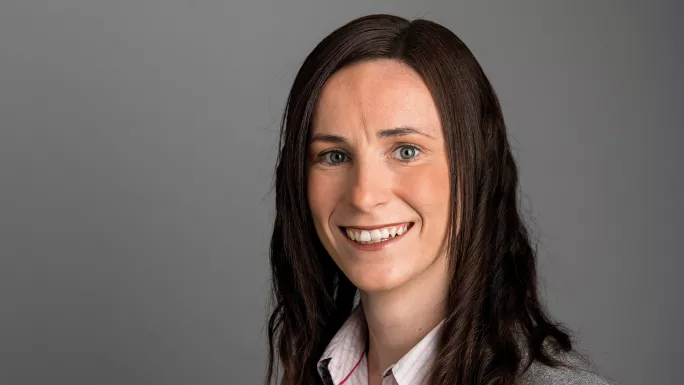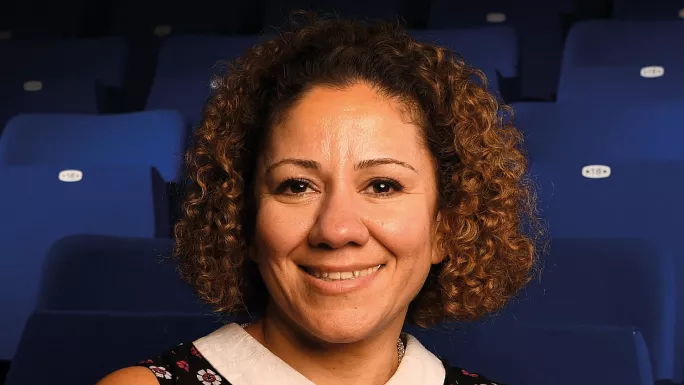The new wave of principals looking to shake up FE

The challenge of making the voice of further education heard in Whitehall has been one of the biggest tasks faced by the sector in recent years. The Association of Colleges is on a mission to overcome this.
Chief executive David Hughes announced this summer that, as part of a wider new strategy, the association would be creating policy groups with the aim of encouraging college leaders to increase their profile on the national stage and represent the interests of FE.
“As a sector, we don’t have a voice that is as effective as it should be,” he says. “And if that voice is always the AoC, it will always be limited. So we are supporting college leaders to be a more effective, more influential voice for the sector.” His ambition, he adds, is to see “colleges, as a sector, having more confidence about the part they play in the wider education system and communities”.
Data from the Education and Training Foundation, published in June, shows that the median age for senior managers in the FE workforce is 51. So the AoC is looking to encourage the newest generation of principals to become strong advocates for the sector.
In the run-up to the AoC annual conference next month (see box, ‘Divining the future of FE’, page 56), Tes talks to five college principals - the new generation of FE big-hitters - about their careers, as well as their ambitions and concerns for the future of the sector.

Jo Maher
Principal and chief executive, Boston College
Applied sports psychologist Jo Maher became principal and CEO of Boston College in August aged just 32, having spent two years as assistant principal at Reaseheath College. She’s also a WorldSkills team leader, and this week she was in Abu Dhabi cheering on Team UK.
Maher came into FE after she was approached by a lecturer at Loughborough College, who had heard her give a presentation as part of her master’s degree at Loughborough University. Shortly afterwards, she began to teach functional skills in maths and English at the college, along with courses for Neets, and programmes in sports and sports development as a sessional lecturer. Several months later, she joined FE full time.
“What has kept me in FE is the genuine impact you can have on the learners,” Maher says. “As hard as the job is, and in terms of teaching, it is a very difficult part of the market to work in, but it is so rewarding. It is about helping people maximise their potential and adding value.”
Among the greatest challenges faced by the college, she says, is Brexit, given that a large proportion of its students are European citizens from overseas. She also expects the compulsory work-placement element of the new T levels to prove challenging. “If you are asking an employer to keep someone with them for 300 hours, you have to be sure that is the right thing to do - for the employer and for the learner.
It is “critical” that more principals speak up on behalf of the sector, she says. “The role of principal is not just about what you do in your college - you can make sure you have a wider impact,” adds Maher. “You are a custodian of the role and you have a responsibility to engage in the wider debate.”

Stuart Rimmer
Principal and chief executive, East Coast College
Stuart Rimmer has been a principal for four years - first at Great Yarmouth College and now, following its merger with Lowestoft College, at the recently created East Coast College.
Having started his career in textile manufacturing before moving into financial services, he then fell in love with teaching. Keen to use his commercial experience and make “the biggest possible difference” to learners, he joined Newcastle College to teach business and economics.
“I moved through the ranks there - it was a great place to do an FE management apprenticeship,” the 42-year-old says.
After becoming programme manager for business, accounting and law, he advanced to director of quality and enterprise at Lancaster and Morecambe College before landing his first principalship in Norfolk.
Today’s college leaders need “depth of resilience”, he says. “The way we are funded and thought of as a sector means there are no right moves to make as a strategy leader. You have to just make the best move you can.”
Balance, he says, is a crucial concept in leadership - looking at the “long-term future of the college and my stewardship of this role”, as well as “the short-term need to remain financially stable”.
There is a need for principals to stand up for their sector, he believes. “Principals have responsibility, not just for their own institution, but to support the sector,” says Rimmer. “We will all have our own areas of expertise - mine is wellbeing and mental health - where we can contribute.”

Nick Juba
Chief executive, Greater Brighton Metropolitan College
Nick Juba has first-hand experience of the way FE can benefit young learners. “I was doing my A levels, and I just couldn’t see the point, so my mum dragged me to my local college,” the 43-year-old recalls. “The key was it got me back into the system, and the vocational approach suited me.”
His career then took a different path, culminating in his appointment as director of the University of the Arts London, having worked as a senior adviser at the Qualifications and Curriculum Authority.
“I forgot about FE,” he admits. “When I moved back to Brighton 10 years ago, I wanted to get involved in the community.” He became a governor at a local college, at which he served for five years, two as chair. He then took on the role of chief executive of City College Brighton and Hove, Greater Brighton Metropolitan College’s predecessor, two years ago.
Choosing which challenges to focus his time on is key, he says.
“For me, the real challenge is how do you dedicate your time to the real challenges and let the other stuff look after itself?
“Because the job is challenging, in order to have the energy [needed] you have to be bloody resilient. I get a kicking in the press and from my staff, but I don’t mind because I am deeply optimistic about our sector.”
Despite his positive outlook, Juba has concerns about the treatment of FE by the government - not least the funding gap between school-age pupils and 16-plus students. This, he says, is “a scandal”. Other challenges for his own college revolve around the central issue of funding, he says, linked with staff retention and recruitment.

Saboohi Famili
Principal and chief executive, Epping Forest College
Saboohi Famili came to the UK in 1999 as an asylum seeker from Iran, where she had pursued a career in engineering and held the role of assistant professor at the University of Tehran. Because asylum regulations prevented her from gaining employment for the first six months of her stay, she enrolled at Merton College (now South Thames College) to study accountancy, and was quickly offered a part-time role in teaching.
This developed into a full-time position teaching electronics and IT. Having studied for a master’s in educational leadership and management, she then worked her way up the college’s managerial ladder. At the age of 35 - and six years after arriving in the UK - she became principal of Sutton College. In 2016, following a two-year stint as principal of Guernsey College, she returned to the mainland to join Epping Forest College.
“Leadership is about the ability to adjust and adapt,” the 46-year-old principal and CEO says. “It is all about adjusting to the circumstances you find yourself in and having an open mind. That has served me well.
“For me, there are key things we should do nationally to represent the sector better; wider partnership engagement with employers and ensuring the whole curriculum is tailored to make sure it is relevant to industry - that attitude and approach is something that should be expanded nationally.”

Matt Hamnett
Principal, North Hertfordshire College; also chief executive of Hart Learning Group
Before entering the FE sector, Matt Hamnett was a market director in the group sales team at outsourcing-services company Capita. Prior to that, he worked for the Department for Education on FE and skills policy. His first job in FE was running a college, as principal of North Hertfordshire College in 2015. Not long afterwards, he created the Hart Learning Group, a charitable organisation that also comprises the Hart Schools Trust, three colleges in Saudi Arabia and spin-off business Hart Learning and Development.
Having been involved in strategy, policy and government, running a college was “the last thing out there for me in the sector”, 39-year-old Hamnett says. He also feels that education and FE is “the most important thing in the world”.
“It sounds twee, but it is true,” he says. “As economic and societal times get difficult, education gets more important.”
A good college leader has to be a good decision-maker, he believes: “You have got to be able to make big decisions and hold your nerve. You have to understand an organisation so you can let it run itself.”
But it’s the fast pace of change that is the biggest challenge. He says: “If you give me a bad football pitch every week, I’ll learn to play football on it. But if you give me a different pitch every week, I might not.”
You need a Tes subscription to read this article
Subscribe now to read this article and get other subscriber-only content:
- Unlimited access to all Tes magazine content
- Exclusive subscriber-only stories
- Award-winning email newsletters
Already a subscriber? Log in
You need a subscription to read this article
Subscribe now to read this article and get other subscriber-only content, including:
- Unlimited access to all Tes magazine content
- Exclusive subscriber-only stories
- Award-winning email newsletters